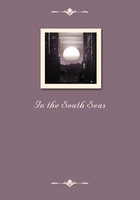
第30章 A PORTRAIT AND A STORY(2)
The married and the celibate missionary,each has his particular advantage and defect.The married missionary,taking him at the best,may offer to the native what he is much in want of -a higher picture of domestic life;but the woman at his elbow tends to keep him in touch with Europe and out of touch with Polynesia,and to perpetuate,and even to ingrain,parochial decencies far best forgotten.The mind of the female missionary tends,for instance,to be continually busied about dress.She can be taught with extreme difficulty to think any costume decent but that to which she grew accustomed on Clapham Common;and to gratify this prejudice,the native is put to useless expense,his mind is tainted with the morbidities of Europe,and his health is set in danger.The celibate missionary,on the other hand,and whether at best or worst,falls readily into native ways of life;to which he adds too commonly what is either a mark of celibate man at large,or an inheritance from mediaeval saints -I mean slovenly habits and an unclean person.There are,of course,degrees in this;and the sister (of course,and all honour to her)is as fresh as a lady at a ball.For the diet there is nothing to be said -it must amaze and shock the Polynesian -but for the adoption of native habits there is much.'CHAQUE PAYS A SES COUTUMES,'said Stanislao;these it is the missionary's delicate task to modify;and the more he can do so from within,and from a native standpoint,the better he will do his work;and here I think the Catholics have sometimes the advantage;in the Vicariate of Dordillon,I am sure they had it.I have heard the bishop blamed for his indulgence to the natives,and above all because he did not rage with sufficient energy against cannibalism.It was a part of his policy to live among the natives like an elder brother;to follow where he could;to lead where it was necessary;never to drive;and to encourage the growth of new habits,instead of violently rooting up the old.And it might be better,in the long-run,if this policy were always followed.
It might be supposed that native missionaries would prove more indulgent,but the reverse is found to be the case.The new broom sweeps clean;and the white missionary of to-day is often embarrassed by the bigotry of his native coadjutor.What else should we expect?On some islands,sorcery,polygamy,human sacrifice,and tobacco-smoking have been prohibited,the dress of the native has been modified,and himself warned in strong terms against rival sects of Christianity;all by the same man,at the same period of time,and with the like authority.By what criterion is the convert to distinguish the essential from the unessential?He swallows the nostrum whole;there has been no play of mind,no instruction,and,except for some brute utility in the prohibitions,no advance.To call things by their proper names,this is teaching superstition.It is unfortunate to use the word;so few people have read history,and so many have dipped into little atheistic manuals,that the majority will rush to a conclusion,and suppose the labour lost.And far from that:These semi-spontaneous superstitions,varying with the sect of the original evangelist and the customs of the island,are found in practice to be highly fructifying;and in particular those who have learned and who go forth again to teach them offer an example to the world.The best specimen of the Christian hero that I ever met was one of these native missionaries.He had saved two lives at the risk of his own;like Nathan,he had bearded a tyrant in his hour of blood;when a whole white population fled,he alone stood to his duty;and his behaviour under domestic sorrow with which the public has no concern filled the beholder with sympathy and admiration.A poor little smiling laborious man he looked;and you would have thought he had nothing in him but that of which indeed he had too much -facile good-nature.